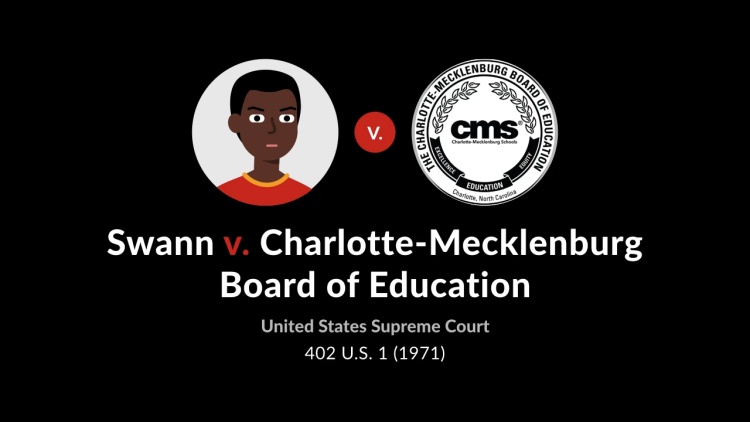Swann v. Charlotte-Mecklenburg Board of Education
United States Supreme Court
402 U.S. 1 (1971)
- Written by Megan Petersen, JD
Facts
After the United States Supreme Court’s decision in Brown v. Board of Education, 347 U.S. 483 (1954), the State of North Carolina applied the decision by ending segregation through a school-assignment plan based on neighborhoods approved by the Court. However, when the Charlotte-Mecklenburg Board of Education (the Board) (defendant) consolidated school districts from the city itself and within its surrounding areas, the practical effect was that the majority of African American children still attended segregated schools because of the geographic location of their residences. The National Association for the Advancement of Colored People (NAACP) brought suit in federal district court on behalf of Swann (plaintiff), an African American school-age child, challenging continued segregation by the Board and seeking a judgment from the court that busing of students to different school districts was required for desegregation. The district court agreed with Swann, but the court of appeals reversed. The United States Supreme Court granted certiorari.
Rule of Law
Issue
Holding and Reasoning (Burger, C.J.)
What to do next…
Here's why 907,000 law students have relied on our case briefs:
- Written by law professors and practitioners, not other law students. 47,100 briefs, keyed to 996 casebooks. Top-notch customer support.
- The right amount of information, includes the facts, issues, rule of law, holding and reasoning, and any concurrences and dissents.
- Access in your classes, works on your mobile and tablet. Massive library of related video lessons and high quality multiple-choice questions.
- Easy to use, uniform format for every case brief. Written in plain English, not in legalese. Our briefs summarize and simplify; they don’t just repeat the court’s language.





